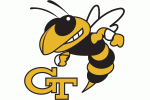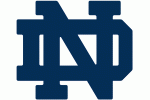Consider yourself warned.
I would like to take this opportunity to suggest a new rule for student-athletes at UNC.
Don’t take anything from anyone. Someone drops a dollar on the street, leave it there. Someone offers you a ride home, walk. Hide your kids, hide your wife because the NCAA is suspending everyone.
I am not sure to what extent taking impermissible benefits was impressed on these players. Since they made an effort to pay off part of the benefit it would seem Deunta Williams and Kendric Burney were aware of their responsibilities. However, they obviously did not do enough. They committed violations and they will pay the price both in currency and games. I don’t have a problem with discipline if the case has been proven. I do have a problem with the illogical and inconsistent meting out of discipline by the NCAA without a hint of transparency. I do not care for having an organization being judge, jury, appeals court and executioner that cannot be held accountable. The NCAA is no different than referees who interpret the rules but are never forced to explain themselves to the media. If you are going to hold all the power of the lives of 18-22 year old kids when they commit violations at least have the guts to stand up and own what you are doing.
The other issue I have is just how quickly a student-athlete can slide into a violation. It is like these guys are walking on an icy hill. One slip and down they go landing somewhere maybe they never intended to go. I do not want to portray these guys as victims because they are not. They made their bed and now it’s bedtime. However I can also see how easy it is to screw up. Williams and Burney meet Omar Brown who is a former UNC player. Having a former student-athlete who, by all accounts, has a successful career should serve as a nice role model for these guys right? And the NCAA would probably say they have no issue with such a relationship. In fact such a relationship should be encouraged. And so it goes. Williams and Burney becomes good friends with Brown. They take up an offer to visit him in California. During the course of taking these visits the lines gets skewed and the boundaries muddled. Brown picks them up at the airport. Brown pays for a few pizzas. Maybe Brown pays for other things he shouldn’t. Williams and Burney know this and either don’t know it is a violation or apply the same relative morality all of us apply in life. You know when we justify a little white lie here or not telling the cashier they did not charge us enough for something. Burney’s father says his son was careful. Even UNC thought Williams had covered all his expenses. However the lines get hazy sometimes. Not to mention how many of these guys keep receipts. Heck, how many of us actually hold onto receipts for things we buy? We probably do for bigger purchase items. Take for example the trip I took to Korea in February to adopt out fourth child. I can account for money I spent on my credit card but I also spent money using local currency. I am not really sure how much that is because I tossed the receipts. The point is not only do players have to be able to discern what kind of person they are associating with but they apparently also have to keep meticulous track of their expenses. Funny that a student will a full ride to major in music or business does not have to do the same. A regular student can walk into Suttons, make friends with Omar Brown, go to California and Brown can pay for a variety of things, no one cares. A student-athlete does it and it is a problem.
Therein lies the great hypocrisy of it all. The NCAA’s mantra, where student-athletes are concerned, is they must be treated the same as a regular student. Except they are not treated the same. They are subject to rules other students are not subjected to because of the NCAA eligibility. While the NCAA proclaims athletes must be equal with regular students they are not treated the same way. That runs both ways. In one respect they are lauded and revered. They enjoy status and they have a free ride for tuition and lodging. But it comes with a price. It comes with a incredibly complicated and large NCAA rule book which governs aspects of their lives while their fellow student is not subject to the same edicts.
Again, I am not arguing Williams or Burney or the rest should not be punished. They broke the rules and the NCAA found them guilty. My gripe here is the rules themselves. I understand them in some cases. If you are talking about boosters giving players $100 handshakes or agents providing benefits, then there obviously should be some governance of that. A free flow of money and gifts to some athletes but not others would create inequity and I imagine invite corruption into the games themselves. However, in the two cases before us right now you have a former player socializing with two current players and in the course of that benefits were given. Burney and Williams should probably have known better and honestly Brown should have as well considering he was one an athlete at UNC himself. Still, it is easy to see how the rules, which can be draconian at times, cause even the simplest acts to be problematic for the student-athlete in question.
As for Burney’s association with Chris Hawkins, this is what the NCAA rule says about player contact with agents or agent-like creatures:
Example: A student-athlete is befriended by a runner for an agent. The student-athlete is unaware of the connection between the runner and agent. The runner gives the student-athlete long-distance calling cards, pays for meals, articles of clothing and a new car stereo. The student-athlete never asks why the runner is providing him with these items.
The student-athlete’s educational institution becomes aware of the runner’s identity and the provision of benefits to the student-athlete.
The institution must declare the student-athlete ineligible for intercollegiate competition. The institution decides to ask for the reinstatement of the student-athlete’s eligibility and sends a request to the NCAA staff.
At a minimum, the student-athlete will be required to repay the value of the impermissible benefits and will be withheld from a certain number of contests, based on case precedent.
Try not to laugh too loudly over that last line about basing a punishment on case precedent. That would mean the NCAA acts consistently from case-to-case and we all know that is not true. The example is interesting. Basically, ignorance of the player regarding the individual’s status as an agent or runner is not a valid defense. Now, I agree with the notion that Burney has to know better when it comes to receiving benefits from anyone. Whether he knew Hawkins’ status or not is moot. Burney needs to be careful. His father claims his son was careful but the NCAA disagreed so here we are. The issue I would take with the above example has to do with whether or not the NCAA informs schools who is an agent or agent-like creature(known henceforth as an ALC, hat tip: Doc) Does the NCAA keep a master list of all ALCs? Do they share than information with the schools? How long has Hawkins been considered an ALC by the NCAA? Did they make that declaration during the A.J. Green case? Was it made two years ago? Four years ago? If Hawkins was labeled an ALC as a part of the the A.J. Green case then pray tell how was Burney supposed to know he was dealing with an ALC? Hawkins was a former player and was at UNC like many former players. Setting aside the fact he was kicked off the team a few years ago and his drug arrest which no one knew about until last week, why would Hawkins’ presence be an issue if the NCAA did not bother to tell anyone he was an ALC? I am not trying to spin this but pose a serious question. Take any former player you like from any program in the country and ask if the NCAA says they are an ALC but did not tell anyone and he shows up at his former school why would anyone question it?
My point is the rules create a precarious perch on which student-athletes sit. For my money, they should simply err on the side of caution by refusing any benefit in any form whether it be five dollars for lunch or a ride to Bojangles. They should talk about any questionable issue with compliance as soon as possible. Then again that is probably easier said than done during the normal flow of life. I joked on an earlier post that UNC players need to have Amy Herman on speed dial and call her up at 2 AM to see if it is okay to ride with someone and gets some pizza. Unfortunately there is some truth to that. Given the complexity of the rules, a player can never really be sure who or what he/she is dealing with in any situation. Hawkins to this day is running around telling anyone who will listen he has done nothing wrong and has the players’ best interest at heart. First of all, Chris, shut your pie hole and go away. Secondly, if Hawkins truly believes he does not understand why the NCAA considers him an ALC and Burney asked him, “Hey Chris, are you one of those ALCs?” and Hawkins says “No, dude” then I can see how Burney might not think Hawkins paying for something is an issue if the two have developed a friendship. Of course with Hawkins it is a double-whammy of sorts since he is also a former player like Brown. So Burney should have known better but at the same time the slippery slope still applies.
The problem for me is not that the players were punished for breaking rules. My problem is I think the rules should be reformed to make it easier for the players to know which end is up. Basically I am making the same argument people who are ague for a flat Federal income tax make. Instead of different levels of taxation, some say just make everyone pay the same rate. Where the NCAA rules are concerned instead of worrying about who is a booster or an ALC simplify it.
- Spell out clearly what benefits are.
- Establish family members as the only people who may give said benefits without limit
- Allow former teammates to provide benefits up to a certain reasonable limit.
- Benefits coming from anyone else are prohibited.
- Establish dollar amounts to determine severity of violations, punishments and follow them to the letter.
- Do not suspend for first time offenses unless the benefits are egregious or multiple in nature. Even then shoot for 10% of the season not 30% to half.
That would be like what, two pages? Heck you could fit the highlights on a card the player could carry in his wallet.
It is entirely possible I am missing something in the bigger picture. Having been a student-athlete I know how it works. Revenue sports athletes have an added element they have to deal with because of the professional leagues not to mention to grotesque amount of money being earned by the NCAA, the conference, school and their own head coach. Still, I just do not think it is all that complicated. I think it would be much easier to have simple, hard rules with some leeway built into them than the pages on pages of legalese not even the compliance office fully understands. To paraphrase Princess Lea, “The more you tighten your grip, the more schools will slip through your fingers.” Severe punishments are meant to be a deterrent but when the punishments are arbitrary and lack transparency they lose their effectiveness. Every parent knows that if you drop the hammer on a child without making a clear explanation as to why the punishment fits the crime, the punishment is not helpful. Also, if the punishment for the same wrong varies from one day to the next then it confuses the child further. If the NCAA wants to be the parent then do what good parents do: Make it simple, consistent and merciful.
This article was originally published at Tarheelfanblog.com
















